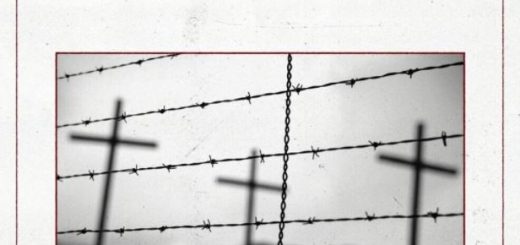Kyoto by Phoebe Bridgers Lyrics Meaning – Unpacking the Emotional Journey of Self-Discovery
- Music Video
- Lyrics
-
Song Meaning
- Escaping to Nowhere: The Lure of the Foreign and Familiar
- A Fractured Dialogue: Unpacking the Poignancy of Sobriety and Separation
- Soaring Over the Status Quo: The Motifs of Flight and Change
- Chemtrails and Broken Tails: Vivid Imagery as Emotional Landmarks
- The Quiet After the Storm: The Hidden Meaning in Bridgers’s Confessions
Lyrics
I got bored at the temple
Looked around at the 7-Eleven
The band took the speed train
Went to the arcade
I wanted to go but I didn’t
You called me from a payphone
They still got pay phones
It cost a dollar a minute
To tell me you’re getting sober
And you wrote me a letter
But I don’t have to read it
I’m gonna kill you
If you don’t beat me to it
Dreaming through Tokyo skies
I wanted to see the world
Then I flew over the ocean
And I changed my mind (woo)
Sunset’s been a freak show
On the weekend
So I’ve been driving out to the suburbs
To park at the Goodwill
Stare at the chemtrails
With my little brother
He said you called on his birthday
You were off by like ten days
But you get a few points for trying
Remember getting the truck fixed
When you let us drive it
Twenty-five felt like flying
I don’t forgive you
But please don’t hold me to it
Born under Scorpio skies
I wanted to see the world
Through your eyes until it happened
Then I changed my mind
Guess I lied
I’m a liar
Who lies
‘Cause I’m a liar
Phoebe Bridgers’s ‘Kyoto’ functions like a puzzle, each verse a piece inviting the listener into a world of complex emotions and vivid storytelling. The track’s upbeat tempo belies the song’s contemplative core, as Bridgers artfully weaves a narrative of escape, revelation, and the often painful path toward self-understanding.
Through ‘Kyoto’, Bridgers constructs a multifaceted self-portrait against a backdrop of international dislocation. It’s a song equally of its time and timeless, a melancholic ode to the promises of growth and the disillusionment that frequently follows their pursuit, wrapped in a sound that’s as inviting as the story is deep.
Escaping to Nowhere: The Lure of the Foreign and Familiar
As the song unfurls with anecdotes of a ‘day off in Kyoto’, Bridgers sings of temples and 7-Elevens, blending the exotic with the everyday. The juxtaposition serves as a metaphor for the search for novelty and the realization that wherever one goes, some things remain inescapably mundane. It’s in these settings that Bridgers grapples with the notion of travel as an illusory balm for deeper, more persistent aches.
The personal touchstones, from the speed train to the arcade, paint a picture of someone poised between engagement and detachment, underscoring the internal conflict that drives the song’s narrative and buttressing its themes of displacement and introspection.
A Fractured Dialogue: Unpacking the Poignancy of Sobriety and Separation
The chorus spirals into a stark confession: ‘I’m gonna kill you if you don’t beat me to it.’ This startling admission hangs over the conversation about sobriety like a storm cloud, suggesting a complexity of feelings about recovery, survival, and the possibility of self-destruction. The specter of substance abuse looms, mapping out an emotional minefield that the protagonist and her interlocutor must navigate.
This line speaks to the paradoxes of caring deeply for someone while harboring immense frustration and fear for what their choices might lead to, ultimately acknowledging the toll it takes on both sides of the relationship.
Soaring Over the Status Quo: The Motifs of Flight and Change
Flight serves as a recurring image in ‘Kyoto,’ symbolizing both freedom and avoidance. Dreams of Tokyo skies and global gallivanting signal a desire to transcend the banal or painful, yet Bridgers’s character admits to a change of heart ‘over the ocean’ — mid-flight. It’s a turning point not just geographically but mentally, a recognition that even the most adventurous escapes can’t outdistance the self.
This change of mind suggests an emotional pivot, embracing the realization that seeing the world, whether through physical travel or somebody else’s viewpoint, is not the solution to her struggles, but rather a deflection of the more demanding task of personal transformation.
Chemtrails and Broken Tails: Vivid Imagery as Emotional Landmarks
The vivid images Bridgers conjures throughout ‘Kyoto’ are laden with emotional significance. From staring at chemtrails in the suburbs to the sensation of twenty-five feeling like flying, the song builds its emotional landscape through a series of snapshots and experiences that are both detailed and allegorical.
These powerful visuals contribute to the song’s resonant depiction of the frayed relationship between Bridgers and her father, wherein each memory is not just recollection but commentary—on growth, on disappointment, and on the scars that familial disengagement leaves behind.
The Quiet After the Storm: The Hidden Meaning in Bridgers’s Confessions
What emerges in the midst of Bridgers’s encounter with cultural shock and personal revelation is a deeper, hidden meaning rooted in the art of confession. ‘Kyoto’ turns the mirror inward, transforming sighs into songs, introspection into art. It becomes clear that the most significant journey Bridgers undertakes in the song is within—not across continents.
At its core, the song traverses the process of facing and dissecting falsehoods—’Guess I lied / I’m a liar / Who lies’—and the recognition that acknowledging one’s faults and deceits is an arduous but essential step towards authenticity and healing. The listener is left with not just the melody but the message that self-awareness, with all its discomforting clarity, is the path to true escape.








